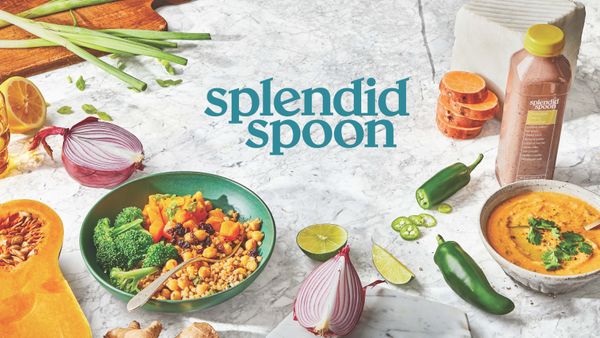1. Acknowledge what you can eat, not what you can’t.
When I first explored a vegan diet, I was still living with my parents and I was unemployed so I had no choice but to put together extremely limited meals with the little amount of vegan-friendly food they bought every trip to the grocery store. I thought, “Being vegan sucks; I can’t eat anything!” Thankfully, over the years and after I moved out and got a job, I realized that my past claim was not true. When I opened the doors to veganism I realized that I was actually eating more food than before, food that was nutritious and varied. It was a win-win situation.
Another great thing about the variety in a vegan diet is that it allows you to explore other cultures’ food. For instance, I now love Mediterranean and Indian food, both of which I probably would have never touched if I stayed in my omnivorous ways.
2. Get ready for some funky looks.
Although vegetarianism/veganism has grown tremendously, there are still people out there who don’t understand why someone would choose to opt out of eating meat, eggs, and dairy. The best thing to do is to not let anyone under your skin; I have gotten mocked many times before for my decision to go vegan and, trust me, it sucks. But over the years, here is what I’ve learned: if you are strong in your reasons for going veg, then you are unstoppable. Being veg isn’t about “self-control” in not eating certain foods; it’s about standing up for what you believe in.
3. Learn the basics about nutrition.
Back when I first went vegan, I was only about 13 years of age and I knew almost nothing about the importance of variety in the diet and healthy, nutritious food sources for important vitamins and minerals. Big mistake; I was left feeling weak and miserable. As the years went by in college and through self-studies, I learned more about which nutrients vegetarians/vegans should incorporate into their diet. I also learned which foods are excellent sources of those certain nutrients. Backed up by what I’ve learned, I began to explore veganism at its fullest and I finally felt healthier than ever. Try looking into legitimate online articles on vegan health or, if you prefer a book, consider Brendan Brazier’s book Thrive: The Vegan Nutrition Guide to Optimal Performance in Sports and Life.
4. Don’t depend on the frozen department for all of your food.
There are many great convenience foods out there in the frozen section of the grocery store which are veg-friendly and enjoying them on occasion is not usually a bad thing. Just don’t overdo TV dinners or microwavable food because most of them are highly processed and contain tons of sodium. Your best bet: aim to center your meals around the produce and bulk department of your grocery store. Both departments are the best for finding natural, minimally-processed (if at all), nutrient-dense food.
5. Is your lifestyle going to change along with your diet?
What is your purpose for trying out veganism/vegetarianism? Is it for your health, the animals, the environment, or all of the above? Are you also pledging to not purchase leather, fur, or body care products that were tested on animals? Answering these questions will help in seeing if your lifestyle will change along with your diet.
I personally went vegan primarily for environmental reasons. I consider myself to be a very eco-friendly person (I recycle, waste less, buy from secondhand stores, etc.). However, being vegan for about three years now, my compassion has grown and I really feel like both my diet and lifestyle are saving animals as well. As for my health, I feel invincible!


